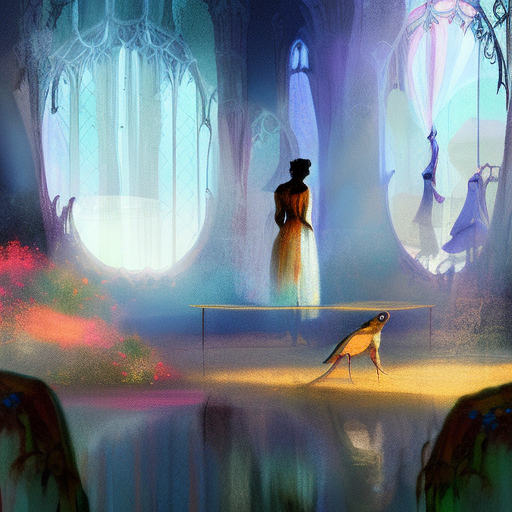The Glass Menagerie: A Tale of Dreams and Disillusionment
In Tennessee Williams’ classic play, “The Glass Menagerie,” the Wingfield family grapples with their own desires and the harsh realities of life in 1930s St. Louis. Through the eyes of the narrator, Tom, we witness the delicate balance between dreams and disillusionment, as each family member struggles to find their place in the world. With themes of escapism, memory, and the fragility of human connections, “The Glass Menagerie” remains a timeless exploration of the human condition.
The Wingfield Family: A Portrait of Dysfunction
“The Glass Menagerie” revolves around the lives of the Wingfield family: Amanda, a faded Southern belle; Tom, a restless dreamer; and Laura, a shy and fragile young woman. Amanda, once a popular debutante, now lives in the past, reminiscing about her glory days and pressuring her children to conform to societal expectations. Tom, trapped in a monotonous job and yearning for adventure, finds solace in the movies and his poetry. Laura, physically disabled and socially anxious, retreats into her collection of delicate glass animals.
The Power of Illusion and Escapism
Throughout the play, the characters in “The Glass Menagerie” seek refuge in illusions and fantasies. Amanda clings to memories of her youth, hoping to relive her former glory through her children. Tom escapes his mundane life by frequenting the movies and immersing himself in literature. Laura retreats into her glass menagerie, finding solace in the delicate beauty of her collection. However, as the play unfolds, it becomes clear that these illusions only serve to further isolate the characters from reality, trapping them in a cycle of disappointment and unfulfilled dreams.
The Fragility of Human Connections
“The Glass Menagerie” explores the delicate nature of human connections and the impact of isolation on individuals. Amanda desperately tries to find a suitor for Laura, believing that marriage will secure her daughter’s future. However, her efforts only serve to alienate Laura further, as she becomes increasingly withdrawn. Tom, torn between his responsibilities to his family and his own desire for freedom, ultimately abandons them, leaving Amanda and Laura to face their own loneliness. The play serves as a poignant reminder of the fragility of relationships and the consequences of our actions on those we love.
Key takeaways from “The Glass Menagerie” include:
- The power of illusion and escapism can provide temporary relief but ultimately leads to disillusionment.
- The weight of societal expectations can stifle individual dreams and aspirations.
- The fragility of human connections and the consequences of isolation.
As the play draws to a close, Tom reflects on the impact of his actions, stating, “You live in a dream; you manufacture illusions! And that’s why you’re always in a state of turmoil.
” This quote encapsulates the central theme of “The Glass Menagerie” – the struggle between dreams and reality, and the consequences of living in a world of illusions.
In conclusion, “The Glass Menagerie” is a powerful exploration of the human condition, delving into themes of escapism, memory, and the fragility of human connections. Through the Wingfield family’s struggles and desires, Tennessee Williams reminds us of the delicate balance between dreams and disillusionment that exists within us all.












